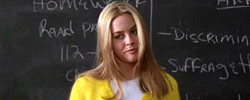Reviews
Clint Eastwood
USA , 1995
Credits
Review by Leo Goldsmith
Posted on 03 July 2006
Source Warner Bros DVD
Categories Chick Flicks
One of the bestselling books in history, Robert James Waller’s 1992 novel, The Bridges of Madison County, has sold over 60 million copies and garnered almost universally negative reviews. Described by Janet Maslin as “the world’s longest greeting card,” the book famously tracks an earthshaking, four-day love affair between an impossibly masculine National Geographic photographer and an Italian-born Iowa housewife, while her family is out of town for a few days in the mid-1960s. Touring the titular bridges with his trusty Nikon and a pick-up named “Harry,” Robert Kincaid finds time to awaken the dormant sexual longings of the earthy Francesca Johnson and — via Waller — those of millions of desperate farmwives all over the world.
Enter, of all people, Clint Eastwood. Though Waller’s Kincaid describes himself as “the last cowboy,” his godlike sagacity and sexual prowess is a far cry from Eastwood’s Bill Munny, the grubby and morally desiccated hero of Unforgiven, the director’s Western-to-end-all-Westerns of three years earlier. Eastwood has always favored physically and ethically compromised heroes, figures crippled by age, regret, and cynicism, and so Waller’s silver-tongued artiste — narrated in a way that seems distinctly like vain self-mythologization — seems quite opposite to embittered souls like Josey Wales and Harry Callahan.
But this great disjunction between novel and film-adaptor works entirely in the film’s favor. A number of seemingly more fitting directors, such as Steven Spielberg and Sydney Pollack, had been attached to the adaptation, but one can hardly imagine their versions to be as spare and sensible as Eastwood’s, in either their direction or acting. For Waller, Kincaid is almost godlike, a “leopard” when in the throes of sexual ecstasy, “a half-man, half-something-else creature” that doles out orgasms like party favors. “He was an animal,” Waller effuses. “A graceful, hard, male animal who did nothing overtly to dominate her yet dominated her completely in the exact way she wanted that to happen at this moment.” In Eastwood’s hands, Kincaid is charming, even (I suppose) moderately sexy, but he is also sensitive, humble, and ultimately quite pitiable. He is a man who speaks of certainty but seems doubtful, and as much as ever, Eastwood employs every line in his face to make Kincaid as credible and un-godlike as possible.
True to his thrifty and unadorned style, Eastwood’s film dispenses with most of Waller’s floweriness in favor of a starchy, realistic setting, a leisurely, real-time pace, and naturalistic performances. The film’s only excesses are its cinematography, which maintains the Iowa farmland’s aspic-colored sunsets throughout, and its soundtrack, which breaks the monotony of chirruping cicadas with the velvety tones of Johnny Hartmann and the rather perfunctory swoon of Eastwood and Lennie Niehaus’s score. It is also, in its two-and-a-quarter-hours length, a good deal more substantial than the novel, giving a sense not only of the setting and the character’s daily lives, but also extending its scope into the lives of Francesca’s children, who discover the affair forty years later. These scenes, which serve to punctuate and comment upon the romantic relationship in the film, were apparently Spielberg’s idea, and they retain a certain forced moralism that is more characteristic of that director’s work. But they also function as a useful counterweight to the more nostalgic, amber-tinted scenes in between and, better yet, they allow Eastwood to dispense with Waller as narrator.
Liberally seasoned with truisms about true love, art, and W. B. Yeats, the novel aggressively challenges credibility (along with good taste and the English language). And although Richard LaGravenese’s screenplay retains a judicious number of Waller’s howlers, their tone is softened somewhat in Eastwood’s hoarse whisper and Meryl Streep’s sonorous Italian intonation. In all of his recent films, Eastwood has relied heavily on the work of other actors to heft the story’s emotional weight. This occasionally results in scenery-chewing, as in an ensemble film like Mystic River, but it also means that, even in those films in which he stars, Eastwood seems to recede further and further into the background. Thus, in Million Dollar Baby, one has a protagonist who inspires pathos almost in spite of himself, a character whose emotions and motivations are parsed by other characters as he himself fades into obscurity. The Bridges of Madison County exemplifies the best of these tendencies, transforming Kincaid from a nauseating philosopher-poet to a humble and ultimately pathetic figure, and matching him with a Francesca Johnson who is truly, as Kincaid tells her, “anything but a simple woman.”
With some tasteful Hollywood plus-sizing and one of her famed accents, Meryl Streep makes Eastwood’s “women’s picture” about the woman. Hoeing in the field, padding around barefoot, and peeling carrots at the sink, Streep invests Francesca with a humanity and humor wholly lacking in Waller’s novel, and makes her newly revived sensuality a good deal more credible. Waller’s is a story about sex disguised as a story about “true love”; with Streep’s performance, Eastwood’s turns into the opposite. But it is also a story about marriage and about Francesca’s agency within (and beyond) it. Not a great deal is heard from Francesca’s husband, Richard, in either the book or the film. But his physical presence onscreen — eating his home-cooked meals and listening to the radio livestock reports with the same taciturnity — marks the distance between Waller’s gooey potboiler and Eastwood’s more down-to-earth romance. It is crucial in both versions that Francesca does not leave her husband for Kincaid, but in Waller’s estimation her gesture is one of feminine self-sacrifice, a relinquishing of her desire in the service of both of the men she loves. Only in Eastwood’s version is Francesca’s choice made something subtler: Francesca’s is a denial of something very like “true love,” but it is emphatically her decision to do so. She is not compelled by a woman’s sense of duty nor by the world’s cruel gender inequities, but by a practical unwillingness to ruin several lives (including perhaps her own) by pursuing an ethereal “true love.”
After all, Kincaid is essentially itinerant and solipsistic (indeed, “the peregrine” is Waller’s etymologically canny epithet), and for all of his talk of “certainty [that] comes but once in a lifetime,” the new life he offers is not certain to be an improvement over the old. But while Waller’s conclusion conservatively reifies Francesca’s duties as a wife and mother, Eastwood’s conclusion is one of utter pragmatism. Neither fleeing with Kincaid nor remaining on the farm is a fully satisfying choice, but that, proverbially, is life. The closest Francesca can have to full satisfaction is to be able to retain her affair with Kincaid as an idealized memory, while persisting in the hard reality that is her home and family life.
At the end of the film, and at the ends of the characters’ lives, both Richard and Kincaid — one on his deathbed, the other through his will — individually express regret that they could not give Francesca all that she wanted. A weary and bed-ridden Richard apologizes to his wife as a final gesture; a lovelorn and remote Kincaid leaves all of his possessions to Francesca, for whom he continued to pine for the rest of his life. But it remains for Francesca’s children (and for the audience) to ponder whether happiness was something for either man to give or whether it was rather something Francesca had to find and choose for herself. Appropriately, Eastwood’s film ends with two contradictory gestures from Francesca’s children. Inspired by the story of their mother’s affair, the son renews his commitment to marriage, and the daughter resolves to get a divorce from her husband and live by herself. In Eastwood’s hands, it seems, even divorce can be more romantic than orgasms under the right circumstances.
More Chick Flicks
-

The Truth About Cats & Dogs
1996 -

Say Anything
1989 -

Gas Food Lodging
1992 -

Pretty Woman
1990 -

Walking and Talking
1996 -

Mean Girls
2004 -

Fried Green Tomatoes
1991 -

Private Benjamin
1980 -

Clueless
1995 -

Erin Brockovich
2000 -

The Bridges of Madison County
1995 -

Bridget Jones’s Diary
2001 -

Working Girl
1988 -

Bend It Like Beckham
2002 -

Bring It On
2000 -

Ghost
1990 -

Truly Madly Deeply
1991 -

The Last of the Mohicans
1992
We don’t do comments anymore, but you may contact us here or find us on Twitter or Facebook.



